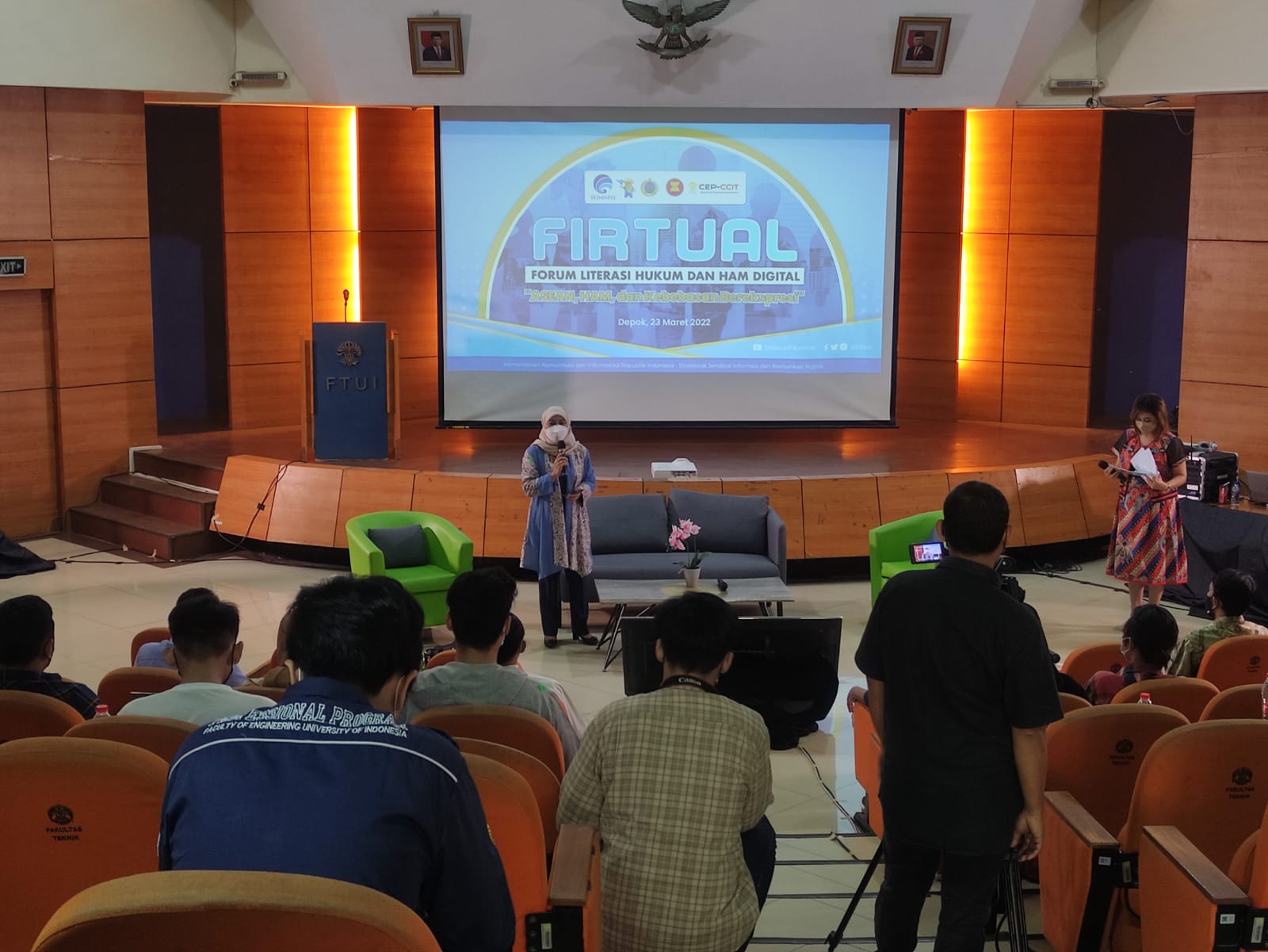On Wednesday (23/3), CEP CCIT, Faculty of Engineering, Universitas Indonesia (FTUI), an institution under the Faculty of Engineering, Universitas Indonesia which is engaged in technology education, held a webinar entitled “ASEAN, Human Rights, and Freedom of Expression”. This webinar presents speakers who are competent in their fields, namely Dr. Muhammad Suryanegara ST, M.Sc., IPU (Director of CEP CCIT FTUI), Prof.Dr.Drs.H.Henry Subiakto, S.H., M.A. (Expert Staff of the Ministry of Communication and Information of the Republic of Indonesia), Rolliansyah Soemirat (Director of ASEAN Political and Security Cooperation, Ministry of Foreign Affairs of the Republic of Indonesia), Yuyun Wahyuningrum (Indonesian Representative for the ASEAN Intergovernmental Commission on Human Rights/AICHR), and Dwi Ardhanariswari, Ph. .D (Academic of International Relations, Universitas Indonesia).
According to Prof. Dr. Drs. H. Henry Subiakto, S.H., M.A. (Expert Staff of the Ministry of Communication and Information of the Republic of Indonesia), since the digital era, many communication phenomena have emerged. Now, anyone can become a communicator, news producer, journalist, observer, commentator, provocateur, etc. People are connected to the internet an average of 3-4 hours a day and there are 204.7 million internet users in Indonesia, 4.4 billion in the world. Freedom of expression is guaranteed in the 1945 Constitution but not absolute freedom. So there must be rules and the truth that the violation does not involve accusations, slander or provocation related to SARA and is in accordance with what is stated in the ITE Law issued since 2008.
Freedom of expression is closely related to hate speech. Although the two are very different. Hate speech is any form of verbal, written, or behavioral communication that attacks a person or group using degrading or discriminatory language when referring to a person or a group based on religion, ethnicity or nationality, origin, race, color, descent, gender or other factors. other identities.
“While the scope of the right to freedom of expression includes the protection of the expression of opinions and the transmission of ideas that may be considered highly offensive to others, and this may include expressions of a discriminatory nature and the manner in which they are disseminated. The right to freedom of expression is not an absolute right and the state can limit rights under international human rights law in certain exceptional circumstances,” said Yuyun Wahyuningrum (Indonesian Representative for the ASEAN Intergovernmental Commission on Human Rights/AICHR) in her presentation.
Rolliansyah Soemirat (Director of ASEAN Political and Security Cooperation, Ministry of Foreign Affairs of the Republic of Indonesia) said international standards on freedom and expression are based on Article 19 of the Universal Declaration of Human Rights (UDHR) and the International Covenant on Civil and Political Rights (ICCPR) and Article 29 UDHR. Indonesia is also one of the first or pioneers in formulating laws on freedom of expression and particularly in regulating cyber security or cyber crime among ASEAN countries. Although there is still no international regulation that specifically regulates cyber security or cyber crime, at this time the issue is very important.
Met on a separate occasion, the Dean of FTUI, Prof. Dr. Heri Hermansyah, ST., M.Eng., IPU expressed his appreciation for the webinar activity organized by CEP-CCIT. “The FTUI academic community as part of ASEAN citizens needs to be involved and have sufficient knowledge of issues that are currently developing, especially related to human rights. Hopefully in the future the knowledge conveyed can help to eliminate boundaries and discriminatory practices in Indonesia,” said Prof. Harry.
***
Public Communication Bureau
Faculty of Engineering, Universitas Indonesia

